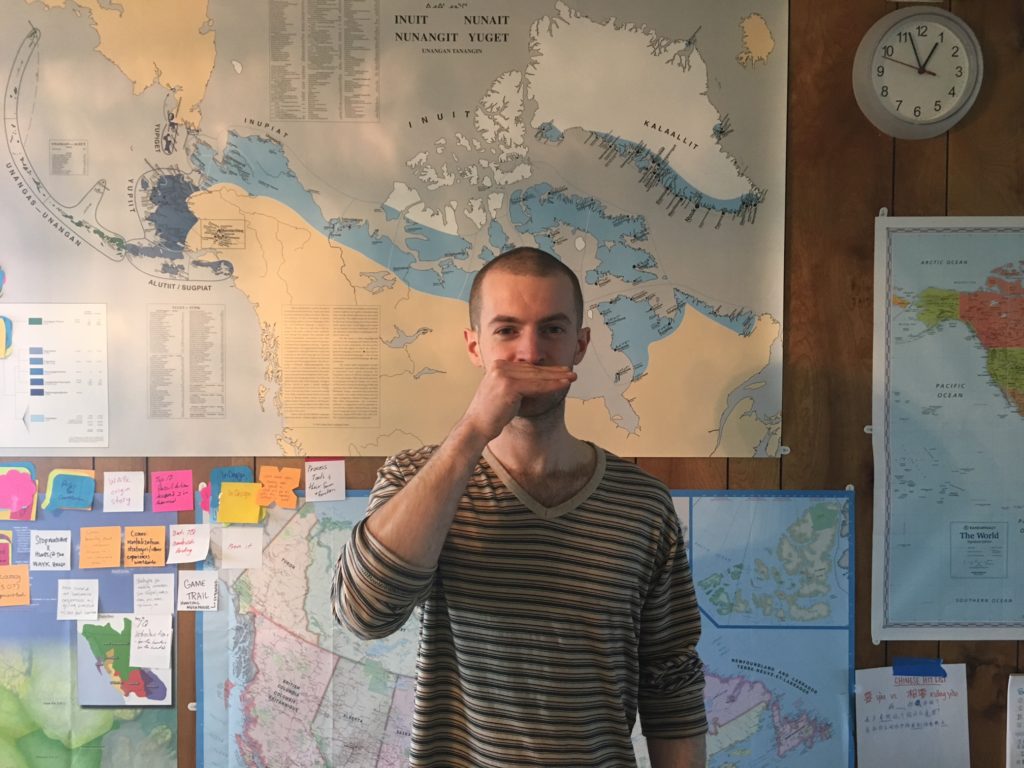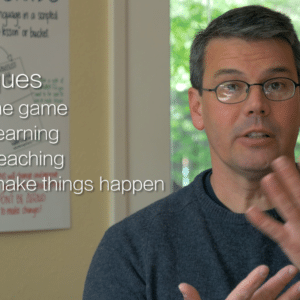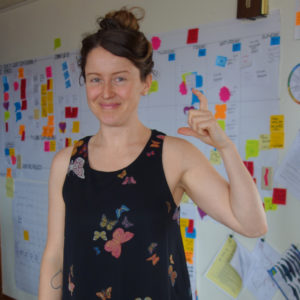
Imagine you are doing a lesson that might only be true for some people in your group. For example, if you are leading a lesson on brothers and sisters, and several of your learners are only children, how do you include them into the activity? Although it might not be true that they have “one sister and two brothers”, you still want to keep them involved in the activity, and it is useful language for them to practice. How do you accommodate these students as a language teacher? How do you allow a student to say something untrue in a safe way?
In WAYK, a technique devised to help tackle this issue is called TQ: Lie to Me. The ASL sign associated with this technique means “to lie”. You can throw this technique when a learner seems confused or is unsure about how to answer, giving them the opportunity to “lie” or “pretend”, to continue the activity in immersion. You can also use this technique to demonstrate that you are about to say something actually untrue to your experience, just for the opportunity to practice. This technique can often be particularly useful for second-language teachers, who may not always know all the alternate ways to teach a particular answer. For example, perhaps you haven’t yet learned how to say “I have no brothers”, so you have to limit the lesson to excluding that phrase. Perhaps once you can check in with a fluent speaker, you can add it in, but for the time being, you can use TQ: Lie to Me as a placeholder.
Though “lying” in real life is often thought to be a negative thing, in early language learning, it can keep an activity inclusive and free-flowing. Because some people might be bothered by the idea of lying, sometimes we explain this technique as “pretending”. The idea is that you only have enough language at the beginning to tell “untruths” in some instances, but as you continually become more fluent, your language becomes more true to yourself and your experience. In the same way that we build our identity when we learn language, as our fluency grows, our ability to express ourselves becomes more authentic to our own experiences.
Post authored by Myles.




